
-
Find the right food for your petTake this quiz to see which food may be the best for your furry friend.Find the right food for your petTake this quiz to see which food may be the best for your furry friend.Health CategoryFeatured products
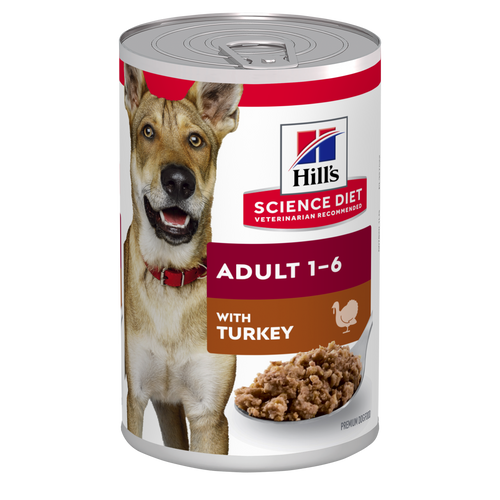 Adult with Turkey Wet Dog Food
Adult with Turkey Wet Dog FoodTurkey & Barley recipe with precisely balanced nutrition to keep Adult dogs active and healthy
Shop Now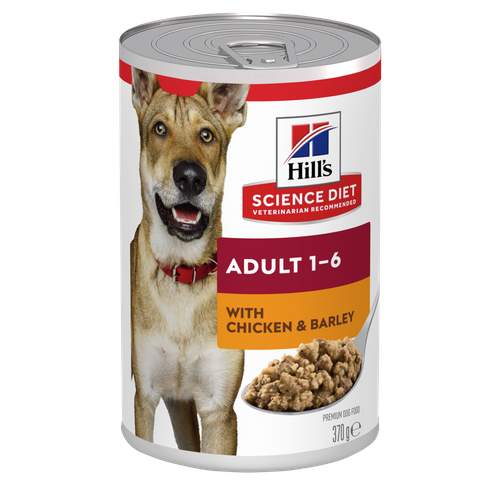 Adult with Chicken & Barley Wet Dog Food
Adult with Chicken & Barley Wet Dog FoodChicken & Barley recipe with precisely balanced nutrition to keep Adult dogs active and healthy
Shop Now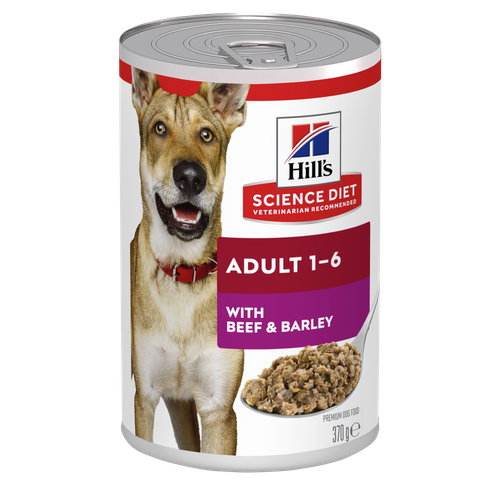 Adult with Beef & Barley Dog Food
Adult with Beef & Barley Dog FoodBeef & Barley recipe with precisely balanced nutrition to keep Adult dogs active and healthy
Shop NowFeatured products Adult 7+ Tender Tuna Dinner Cat Food
Adult 7+ Tender Tuna Dinner Cat FoodWith delicious chunks in a decadent gravy
Shop Now Adult Chicken & Spinach Casserole Cat Food
Adult Chicken & Spinach Casserole Cat FoodWith delicious chunks in a decadent gravy
Shop Now Sensitive Stomach & Skin Chicken & Beef Dinner
Sensitive Stomach & Skin Chicken & Beef DinnerGourmet daily nutrition, carefully made. Tasty chunks with chicken & beef in a decadent gravy. Supports digestive health, nourishes skin and promotes a lustrous fur.
Shop Now -
DogCat
- Cat Tips & Articles
-
Health Category
- Weight
- Skin & Food Sensitivities
- Urinary
- Digestive
- Kidney
- Dental
- Serious Illness
-
Life Stage
- Kitten Nutrition
- Adult Nutrition
Featured articlesHill's Australian Bushfire EffortsRead More Water
WaterWater is the most important nutrient of all and essential for life. Animals can lose almost all their fat and half their protein and still survive, but if they lose 15% of their water, it will mean death.
Read More Pet Food Storage Tips
Pet Food Storage TipsWhere you store your cat and dog food can make a big difference in the quality and freshness once it is opened. Here are some common questions and recommendations for optimal storage for all of Hill’s dry and canned cat and dog food.
Read More -


Eggs are a great source of protein. They can be delicious when boiled, fried or scrambled for breakfast; they're key parts of many favorite desserts; and they're sometimes surprisingly delicious on burgers. Raw or undercooked eggs, however, can expose humans to dangerous bacteria, such as salmonella. Is the same true for our four-legged friends?
If you're an egg lover, it only makes sense that you'd want to share some with your dog. But, can dogs eat eggs? Let's explore whether or not eggs are a safe food for your dog, and discover safety precautions surrounding this popular food.
Can Dogs Eat Eggs?
Believe it or not, dogs can eat eggs! Eggs are high in protein and contain many essential fatty acids and essential amino acids. This makes them a yummy — and healthy — snack when cooked or boiled. In fact, eggs may even be able to help settle your dog's upset stomach and can also be an important source of protein in some commercial dog foods.
As with any treat, it's important to use moderation when feeding home-cooked eggs to your dog. Even though they're a fantastically healthy food, it's possible for your dog to eat too many eggs or, with repeat overfeeding, to become obese. Before you start adding eggs to your dog's meal plan, ask your veterinarian how you can safely introduce them to your dog's feeding.


Tasty Tips
Can Dogs Eat Raw Eggs?
Although cooked eggs can be a nutritious treat for your dog, raw eggs are dangerous. As with humans, raw eggs can expose dogs to harmful salmonella, which can then spread back to their pet parents (especially those with a compromised immune system). But beyond bacteria, there's another threat raw eggs pose to your dog's health: biotin deficiency.
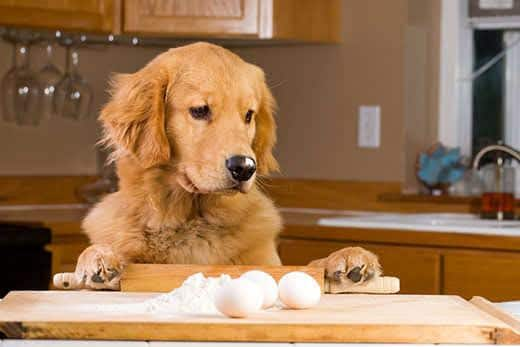
The American Kennel Club (AKC) explains, "[Raw eggs] contain an enzyme that ties up biotin and prevents absorption of biotin into the body." Because biotin is a vitamin responsible for supporting critical bodily functions (including digestion, skin health and metabolism), deficiency puts your dog at risk for serious health complications.
If your dog does consume raw eggs, it's important not to panic. Although the aforementioned issues are frightening, they're rare. If your dog has eaten raw eggs for the first time and their digestive system isn't accustomed to them, they may experience issues such as diarrhoea or vomiting for a day or two after consumption. If you're noticing this issue, make sure to contact your veterinarian.
It's important to monitor your dog's health for the next week or so after they've consumed raw eggs. If you start to notice your dog exhibiting more serious, prolonged issues like lethargy, pale gums or digestive distress, contact your vet immediately. These may be signs that your dog has contracted food poisoning or salmonella.
How to Prepare Eggs for Your Dog
When preparing eggs for your dog, you'll want to think about simplicity and safety. Dogs can eat scrambled eggs, but whole boiled eggs can pose a choking hazard. When feeding your dog a boiled egg, make sure you cut the egg into bite-sized pieces that are easy for them to chew and swallow.
Unlike in your own breakfast, your dog's eggs should be prepared without any of the additives we use to bolster taste, such as oil, salt and butter. According to the AKC, salt "can increase water retention, which is potentially fatal to dogs prone to heart disease." Meanwhile, fats like oil and butter can contribute to weight gain, which puts your dog at risk for obesity-related health issues such as diabetes, heart disease, kidney disease, liver disease, osteoarthritis and respiratory problems — to name only a few.
It's also worth noting that you should always let the eggs cool down before you provide them to your dog. Most dogs don't have the same reservations for thinking about how hot the food is before gobbling it down and could burn their mouths if they eat them right off the stove. Also, always remember to consider calories as part of your dog's daily meals. If you introduce eggs to their meal plans, make sure that these "extra snacks" do not account for more than 10 percent of their daily caloric intake without proper permission from your veterinarian. While eggs can be nutritious for your dog, they still need plenty of other nutrients to keep them happy and healthy, which is why a properly balanced premium dog food is always recommended.
When properly cooked and served in moderation, eggs can be an excellent addition to your dog's meal plan. By keeping your recipes simple and ensuring that the eggs are cut into small pieces, you could introduce your dog to a brand-new, healthy treat they'll love the rest of their lives.


Erin Ollila believes in the power of words and how a message can inform—and even transform—its intended audience. Her writing can be found all over the internet and in print, and includes interviews, ghostwriting, blog posts, and creative nonfiction. Erin is a geek for SEO and all things social media. She graduated from Fairfield University with an M.F.A. in Creative Writing. Reach out to her on Twitter @ReinventingErin or learn more about her at http://erinollila.com.
Related products

Supports lean muscle for dogs who prefer smaller kibble

Clinically proven kibble technology to reduce plaque & tartar build-up, specially designed for small & mini dogs

Supports healthy joints, lean muscle, and beautiful coat for large breed dogs

Supports energy level and beautiful coat in mature dogs who prefer smaller kibble
Related articles
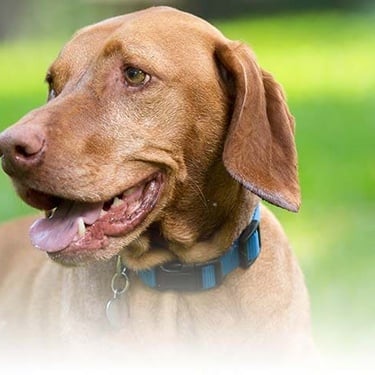
As small and toy breed dogs age, their nutritional needs change.

Learn how today's wet dog food blends have gotten a face lift, and how you'll provide your dog the nutrition he needs in the form he loves.

Extra pounds can cause problems for your dog's overall health. Learn the signs that your dog might be overweight, and what you can do to manage its weight.

Selecting the right food for your puppy is a key to quality nutrition and a long, healthy life., Learn more about how to select the right puppy food.

Put your dog on a diet without them knowing
Our low calorie formula helps you control your dog's weight. It's packed with high-quality protein for building lean muscles, and made with purposeful ingredients for a flavorful, nutritious meal. Clinically proven antioxidants, Vitamin C+E, help promote a healthy immune system.
Put your dog on a diet without them knowing
Our low calorie formula helps you control your dog's weight. It's packed with high-quality protein for building lean muscles, and made with purposeful ingredients for a flavorful, nutritious meal. Clinically proven antioxidants, Vitamin C+E, help promote a healthy immune system.

